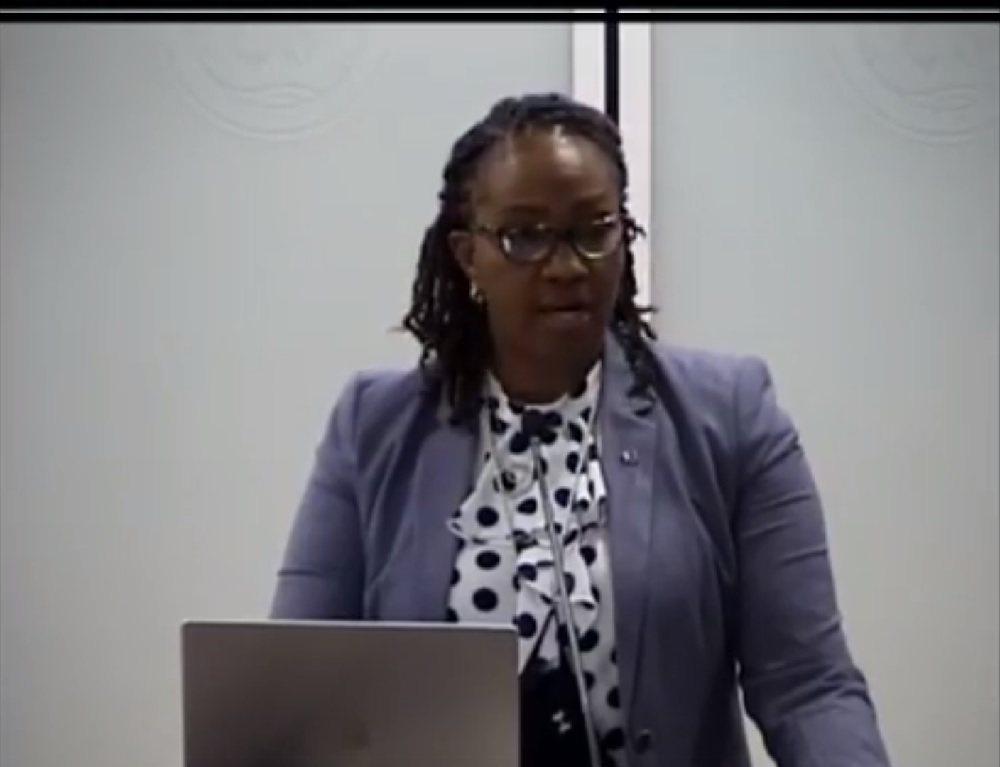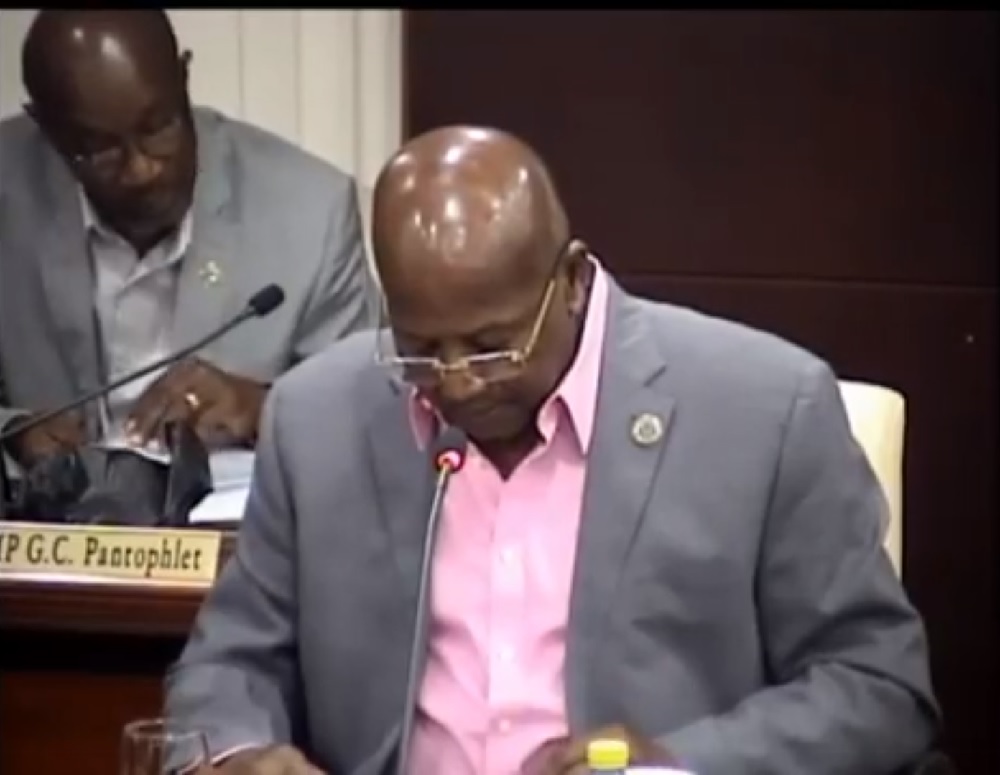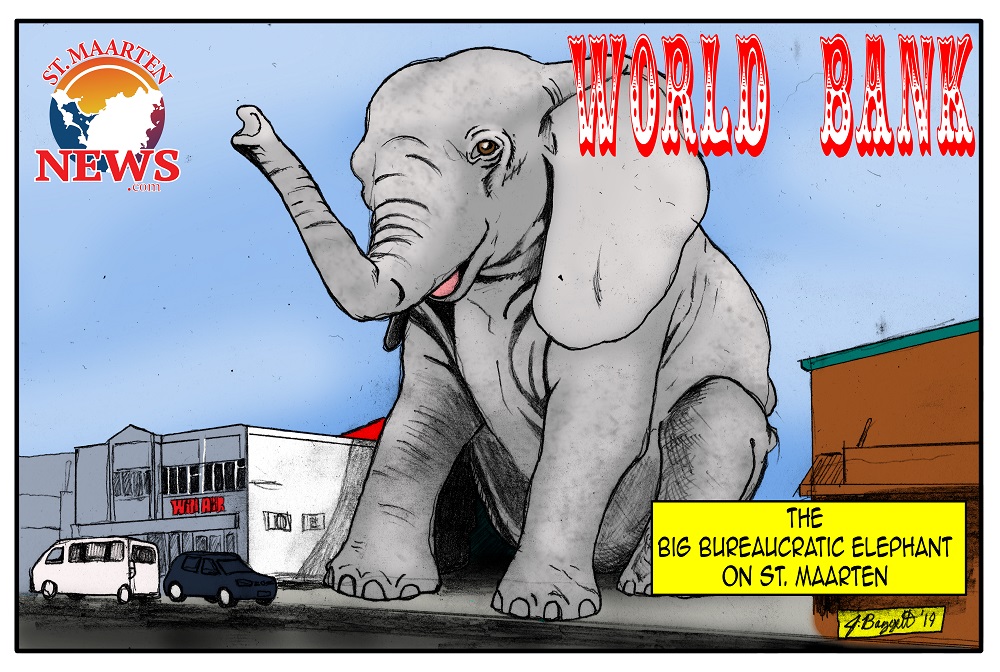MPs question country package but don’t oppose it

PHLIPSBURG — Members of Parliament had literally hundreds of questions during Monday’s Central Committee meeting about the country package agreement the government signed with the Netherlands but nobody expressed explicit objections.
Prime Minister Silveria Jacobs had asked for the meeting to provide Parliament with an update. She described the timeline from the first negotiations up to the signing of the agreement that is linked to the Dutch willingness to keep the government afloat with liquidity support. “Without those loans in the form of liquidity support the Caribbean Dutch countries would have been bankrupt,” Jacobs said.
The prime minister emphasized that the county package for St. Maarten has been established as a mutual agreement with the Netherlands and that it is not a wish list of projects. “It is a dynamic document that is not set in stone.”
The projects outlined in the package will be executed by a platform consisting of the secretaries-general of all ministries under the supervision of a monitoring committee that will report about the progress to the prime minister and the Council of Ministers. The secretaries-general need the approval from their respective ministers for the execution of projects.
Jacobs said that the implementation plan for all measures must be approved by her and by the State Secretary of Kingdom Relations by April 1 and that the Netherlands aims to have the consensus kingdom law Caribbean Organ for Reform and Development (COHO) approved in July. The draft is currently for advice at the Council of State. In the meantime a Temporary Working Organization consisting of a program manager and one assistant is on S. Maarten to discuss future measures with stakeholders.
The questions posed by several MPs focused on details from the county package. MP Claudius Buncamper (USp) asked about the intention to bring the cost of government in line with the Caribbean average of 10 percent of GDP. “We are currently already below that average,” he said, even though realistic figures suggest otherwise. In 2018 for instance Gross Domestic Product was roughly $1.2 billion, while the 2019 budget totaled almost $234 million, putting the cost of government at around 19.5 percent of GDP.
Buncamper also asked what the real number of inhabitants on the Dutch side is: 43,000 (as mentioned by State Secretary Knops), or 59,000 (as recently mentioned by the Ministry of Public Health, Social Affairs and Labor). “Thirty percent of these people depend on the Red Cross food program and that will end on April 1,” he said, warning that this could result in a rising crime rate.
Buncamper furthermore questioned the intention to further increase the retirement age to 66, saying that there is no reliable information about the average life expectancy in St. Maarten. (According to World Bank data the minimum average age on St. Maarten is 73 years and 18 days and the maximum average is 75 year and 215 days; since these averages are from around 2010 they are most likely subject to minor changes).
Several MPs, like Emmanuel, Roumou and Buncamper, asked about the impact of the introduction of a 12.5 percent Value Added Tax (BTW) and how this would function with the open border with the French side of the island.
Emmanuel claimed that 90 percent of jobs doled out by the National Recovery Program Bureau (NRPB) are given to Windward Roads, while this company has been fined for bribery and corruption. “How is that even possible when they are supposed to abide by World Bank procedures?”
Emmanuel suggested that the authority of the COHO to “monitor the obligations of citizens” would result in this organization tapping people’s phones and shadowing them.

MP William Marlin (National Alliance) asked what would happen to the country package if the parliament votes down the consensus kingdom law Caribbean Organ for Reform and Development. He returned in his remarks to 2017 when the kingdom imposed conditions on financial support after Hurricane Irma; the kingdom demanded at the time the establishment of an Integrity Chamber and strengthened border control.
“At the time I called that an indecent proposal,” Marlin said, “Because these conditions had nothing to do with the help we needed. The draft ordnance for the establishment of the Integrity Chamber was already at the Governor, but the Netherlands wanted to bring St. Maarten down on its knees and do things their way. And now they are again talking about strengthening border control. They got it already. So, what has happened during the past three years?”
Marlin said that he remained “very skeptical” about the country package and the imminent establishment of the COHO. “The World Bank is like an elephant. They say themselves that it is not working. We are still struggling to fix roofs. And now the Netherlands wants to drag us back into a colony where they rule.”
Marin criticized the intention to increase the role of financial supervisor Cft. “We left a drowning Netherlands Antilles because it was like a boulder around our necks,” he said. That is why we wanted to get out and that is why we agreed at the time with the Cft. But it is unacceptable to give the Cft now an even bigger role.”
The meeting was adjourned after all MPs had asked their questions.



























